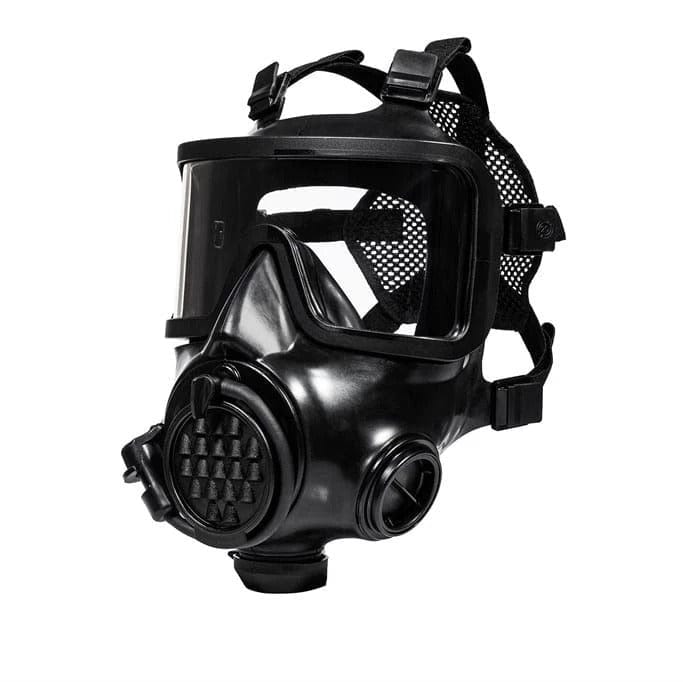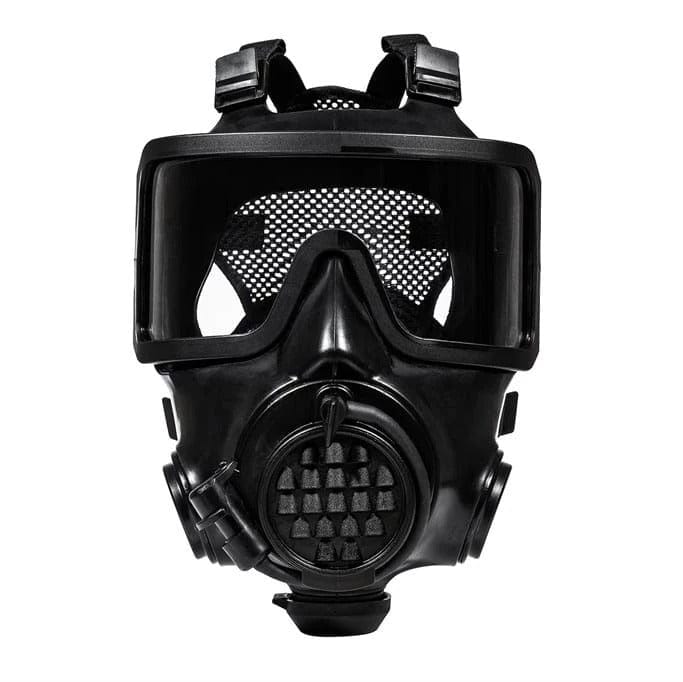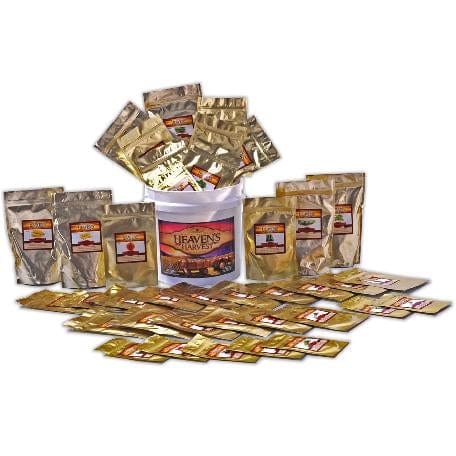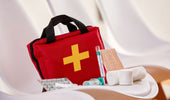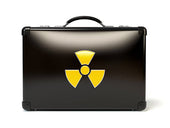Antibiotics treat diseases caused by bacterial infection. They kill or inhibit the growth of bacteria and prevent their spread to other people. Before the 20th century, our forefathers relied on herbal medicines to treat body infections.
By the late 20th century, synthetic antibiotics were derived from the extraction of dyes. One of the first types of antibiotics used in the 1900s was penicillin. Nowadays, people have all kinds of antibiotics in their homes, which each household member uses.
It can be a tablet, cream, ointment, injectable, syrup, etc. Viral diseases are common, especially during disasters. That's why most homes stockpile antibiotics in their homes. However, these medicines do not last forever and have expiration dates.
Environmental factors and storage options also affect the effectiveness of drugs. Thus, this article will discuss drug expiration dates.
We will also tackle whether it is safe to take overdue medicines and give some tips on preventing the degradation of their effectiveness.
Understanding the Expiration of Antibiotics

In the United States, the expiration date indicated in the medicine is the manufacturer's guarantee that the product will stand by until the specified period only. After that, it loses its effectiveness.
Furthermore, the pharmaceutical company has tested the antibiotics to hold up that long if the container is unopened and you store it correctly. According to Dr. Craig K. Svensson, Dean of the College of Pharmacy at Purdue University, it is unusual for medicines to have an expiration date of less than one year and more than five years.
But for him, the date does not follow, and the drug will not last long. It only means that the medication has been tested to last until the indicated date. Meanwhile, the expiration date of prescription medicines may not be what you see. When pharmacists give you medicines, they usually put a discard date on them, one year from dispensing.
According to the National Community Pharmacist Association, prescription medicine is valid for only 12 months or one year. Thus, if you bring the same bottle for refill back to the pharmacy after one year, the pharmacist will know that you need a new prescription.
Also, once you bring the drug home and remove it from its original packaging, it will be exposed to damaging environmental factors such as heat and humidity. As a result, the medicines will not last longer than when they were in their original containers.
In sum, as soon as you get your prescribed drugs, the expiration date is at its most prudent and shortest.
The SLEP
The Shelf Life Extension Program, or SLEP, has provided modern science about drug longevity. Like a regular household, the US Department of Defense stores medications people can use during emergencies.
The United States government started the SLEP in 1986. The agency was tired of spending money replacing expired medicines yearly, so it decided to fund a study to determine whether drugs could last beyond their expiration dates.
The Food and Drug Administration (FDA) also helped found the SLEP. In the study, some medicines were kept past their indicated expiration dates and tested to see if they were still good.
The FDA said that they were mistaken on the caution side when extending the expiration dates. However long they think the drugs will last, they still mark it the period sooner than what it is supposed to be.
Today, there are no drugs that continue for more than ten years after their original expiration date. Indeed, ten years is an extended period for medicine to last. However, they store the medication under SLEP in ideal conditions, unlike regular households and preppers.
Medications at Home versus SLEP Warehouse
People often cite the SLEP as proof that the antibiotics will last long. However, people don't usually realize that in the study, they store the drugs in an ideal setup.
At home, we place the prescription drugs in a pill bottle provided by the pharmacy and not in sealed containers, as noted by Svensson, just like in the factories.
The pill bottles are not humidity-proof, so you must not keep them in the shower room. Other people leave their medicines inside their cars or anywhere, exposing them to extreme temperatures.
Indeed, the medication we have at home is not stored ideally in the SLEP warehouse. Before you apply the SLEP findings, consider that the drugs are stored in their original packaging in the program.
Staff continually monitor it according to the instructions specified by the manufacturers.
Factors that Negatively Affect the Medicines
Various factors contribute to the adverse effects of the medicines. The primary factors are as follows:
- Light
- Moisture
- Oxygen
- Temperature
Thus, you must strictly be conscious of these factors in properly preserving the drugs at your home. If you do not monitor the storage conditions of the medicine, it will start to degrade before its actual date of expiration.
Tips to Store Antibiotics at Home
To enable your antibiotics to last at least their expiration date given, make sure to follow the following tips:
Store in Tight Containers
The first step is to store your antibiotics in tight containers at room temperature, between 59 and 86 degrees Fahrenheit.
If you plan to keep your antibiotics in containers other than those provided by the pharmacy, you must follow the United States Pharmacopeial Convention's packaging standards.
First, ensure your containers are not plastic and do not leach your medicines or vice versa. Vacuum sealing can help some preppers, but it is usually unnecessary.
Keep it at Room Temperature.
According to Prabhavathi Fernandes of Cempra Pharmaceuticals, leaving medicines in your car or a room on a hot summer day could make them unusable.
Some medications can withstand high temperatures, while certain environmental conditions can damage others. However, storing antibiotics below room temperature is also not advisable.
Refrigeration can certainly prolong the life of drugs, but it does not apply to all. Some tablets can absorb moisture, and some may become unstable and break down.
Refrigerate Liquid Antibiotics
Most liquid medicines have a short shelf life and must be refrigerated. However, be sure to follow the instructions on the label.
Close its container tightly, keep it away from children, and do not use it past its expiration date.
What Happens When an Antibiotic Goes Bad
So, what does it mean if the antibiotic goes bad? For one, toxicity is not always a concern when an antibiotic goes past its expiration date.
There are very few medicines that break down into something else and cause harm as the medicine ages.
The majority of expired medicines can lead to a decrease in potency. Using an expired antibiotic will not cure your disease and will give way to the emergence of resistant strains.
This can cause sickness and possibly the acquisition of mutant bacteria. Even if you use a factory-made version of another antibiotic, it will not be enough to kill the newly resistant infection inside your body.
Also, you have contributed to the antibiotic resistance outside your body. For example, if your friend or family members catch your disease, they will acquire antibiotic-resistant bugs.
Ways to Tell if an Antibiotic is Expired

Sniffing the leftover meat on the counter will not help determine if it's terrible. The same is true for antibiotics.
You cannot judge an antibiotic's stability by smelling, tasting, or examining its tablet or capsule appearance. The same is true for antibiotic syrups.
Sometimes, the medicine will look different as it ages, and its potency will reduce before changing its physical appearance. If you notice that the antibiotic has altered its appearance, it would help if you were alarmed.
Some medicines deteriorate over time, resulting in dangerous substances and increasing their toxicity. For example, Tetracycline, a pale yellow powder that becomes brownish and viscous, can develop in expired antibiotics. It is dangerous even before the expiration date.
Meanwhile, specific antibiotics like cephalosporins and penicillins increase allergen strength whenever it goes wrong. Don't use creams, pessaries, suppositories, and ointments that melt under extreme heat. Their active ingredient is not in a homogenous manner anymore.
Shelf Life of Antibiotics
Now that you have heard the bad and good news about antibiotics, the question remains: If you store the medicines under ideal conditions, how long will they last? Most antibiotics can last longer than their expiration date.
However, the time varies. It can last from one year to ten years. According to the 2006 Journal of Pharmaceutical Sciences report, antibiotic extension times vary. For example, if one lasts ten years, it does not mean it will go by any stretch.
Things to do with the Antibiotics
After all of this information, it is clear that you must replace any antibiotics you have before the expiration date to be safe. Taking expired antibiotics, especially if you fail to store them optimally, poses a health risk to you and your family, and it could be life-threatening.
But what if you are in an emergency or a disaster, and all you have are expired medicines? What will you do? Indeed, it will become a judgment call. You can wish that your body can fight off the disease without using antibiotics, or you can take an expired drug.
Potential health risks exist in any scenario. Indeed, according to Essential Drugs, an antibiotic does not become entirely unfit for consumption on the day after its expiration date.
If you have stored it there and there has been no adequate modification in physical aspects or solubility for generic medications, you can have the medicine. Sometimes, using expired antibiotics is better than leaving an ill patient without treatment.
Meanwhile, the expiration dates of drugs that require exact dosage should be strictly followed to prevent the risk of under or overdosage. It is valid for antiepileptic, cardiotonic, and toxic drugs.
Even for well-trained healthcare personnel, survival scenarios often do not have exact, black-and-white answers. The best option is still to have excellent preparation before a disaster strikes.
If you wish to store antibiotics, store them properly as instructed. If they are nearing their expiration date, replace them immediately. If you get into an emergency, you'll know you are safe because your antibiotics are new.
Factors to Consider Before Using an Expired Medicine
Here are some of the factors that you should consider before using an expired medicine:Formulation type
Manufacturers formulate antibiotics differently. There are tablets, aerosols, pills, and liquids. The antimicrobial formulation's stability is an essential consideration in its expiration.Storage Conditions
Determine if you have stored the medicines correctly. Please keep it away from moisture or too much heat.Physical Appearance
Do not take the tablet or the antibiotic pill if it breaks apart or becomes brittle. Similarly, do not drink the antibiotic do not drink the antibiotic if it has lost its shine, become hard, changed color, or precipitated.Conclusion





